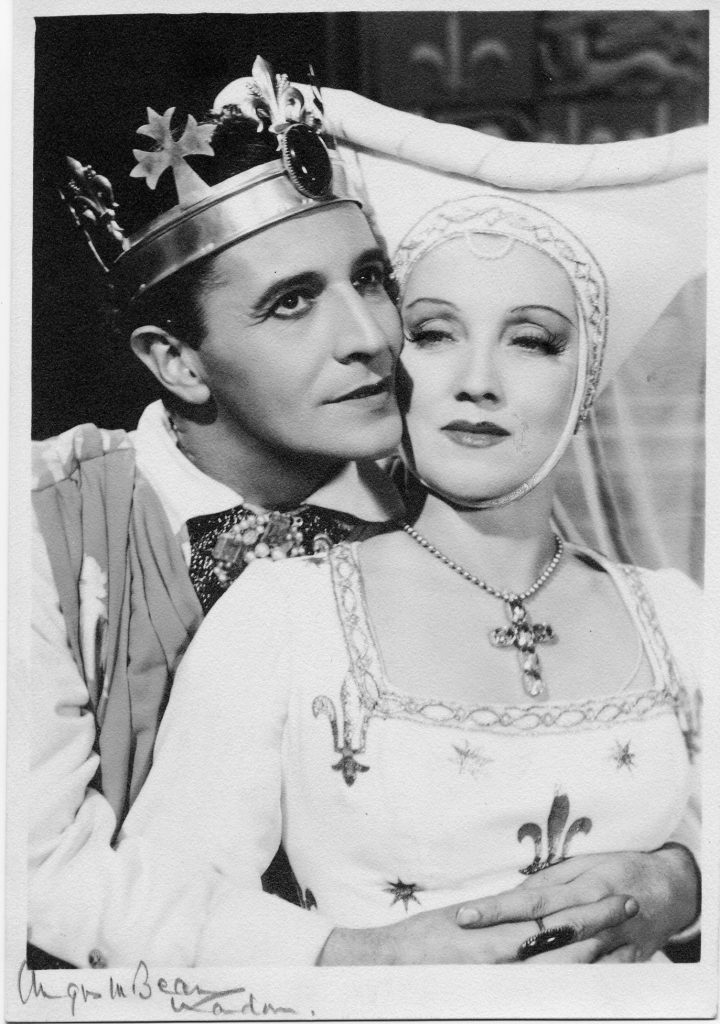Our upcoming world premiere of the new musical The Land of Might-Have-Been, inspired by the early life of Vera Brittain, is built around the songs of Ivor Novello. A giant of the early 20th century stage and screen, the composer and actor, was one of the most popular entertainers of his day – but who was he?
The Welsh actor, playwright, composer and songwriter has since been somewhat overshadowed by his contemporary Noël Coward, but his legacy of work stands up to this day.
Born David Ivor Davies on 15 January 1893 in Canton, Cardiff. His mother was the singer Dame Clara Novello Davies, and his father David Davies was a tax collector. Incidentally, he adopted his mother’s middle name ‘Novello’ as his stage surname but didn’t change it legally until 1927.
His musical skills were evident at an early age and as a young person he began to write songs. After leaving school, Novello moved with his parents to London in 1913. He became virtually an overnight success after composing the patriotic World War I standard “Keep the Home Fires Burning” in 1914, which was introduced much later in the film The Lost Squadron (1932).
By the 1920’s he began to pursue acting and with his leading-man good looks he was often dubbed Britain’s ‘handsomest screen actor’. His acting peak came when he starred in two early Alfred Hitchcock films in the 1920s. Novello’s last film in 1934, Autumn Crocus was to be his last when he decided to devote himself entirely to music and theatre.
Dominating British musical theatre from the mid-1930s to the early 1950s, his shows were heavily influenced by the operettas that he had grown up with in; in particular finding huge success with West End musical productions Glamorous Night (1935) and Dancing Years (1939).
Taking inspiration in his work from Arthur Sullivan of the Gilbert and Sullivan duo, Novello helped popularise their operettas, which still have a keen following today.
During his career he wrote more than 250 songs, eight musicals in all and appeared in six of them, all of them non-singing parts.
Novello died suddenly on 6 March 1951 of a coronary thrombosis only hours after performing in his own play “The King’s Rhapsody.” Hugely popular in his time (though virtually unknown in America), Novello’s lasting influence on film, theater and especially music cannot be denied.
Since 1956 The Ivor Novello awards have been presented annually in London with over 1000 statuettes awarded to shine a spotlight on the talent of music creators. An Ivor Novello Award is now among the most coveted music awards in the world.
In 2005, The Strand Theatre above which Novello lived for many years, was renamed the Novello Theatre, with a plaque in his honour set at the entrance.
The brand new musicalThe Land of Might-Have-Been a co-production with Norwich Theatre, premiers at Buxton International Festival running from 7 – 21 July 2023. Built around the songs of Novello, the musical is loosely based on Buxton’s feminist and pacifist Vera Brittain and her brother Edward Brittain before and during the First World War. The story follows Vera and Roland, and Edward and Bobbie who unexpectedly fall in love over a long, hot summer in Buxton in 1914. The war in Europe shatters all their hopes and dreams but compels Vera into a life-long campaign for peace and equality.
Iain Farrington’s new orchestral arrangement of songs like My Dearest Dear, Waltz of My Heart, My Life Belongs To You and Why Is There Ever Goodbye captures Ivor Novello’s extraordinary gift of melody and harmony.
Kimberley Sykes, Royal Shakespeare Company director, brings her classic theatre experience to the rehearsal room to deliver an elegant, sharply focused production.
🎟 Tickets are on sale now for The Land of Might-Have-Been.
© Images: The Ivor Novello Appreciation Bureau Collection

